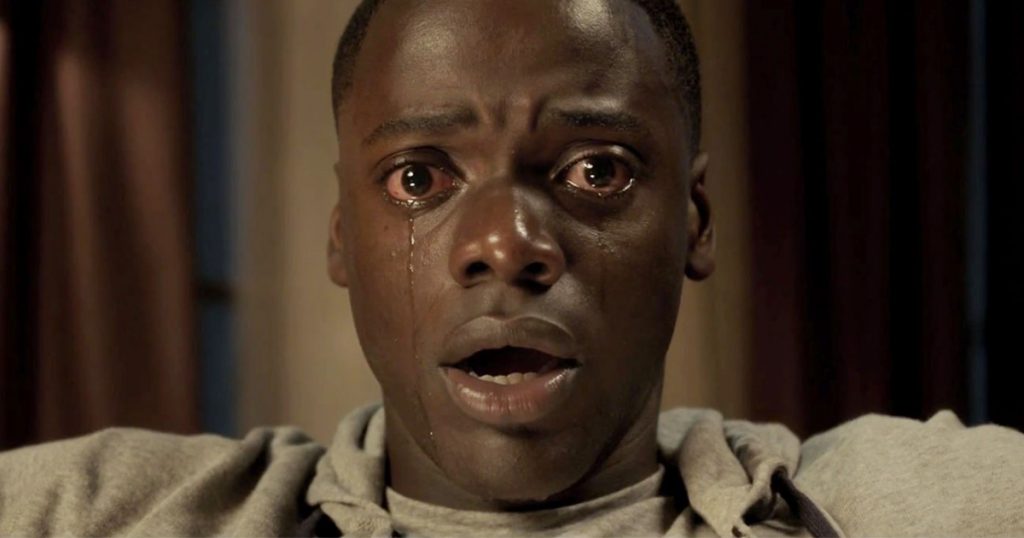by: Michael Shields
Making the case for Denis Villeneuve’s Arrival to win 2016’s Best Picture…

It takes a certain sort of finesse by a director to convey complex ideas in film in a way that is easily understood. This finesse was exhibited with mastery by filmmaker Morten Tyldum in describing the intricate workings of the Enigma-breaking machine “Christopher” in The Imitation Game. A kindred brand of finesse was also displayed with grace by Christopher Nolan in Interstellar, where he somehow made accessible sophisticated ideas about theoretical physics and the nature of reality. That same finesse could be found emanating from Robert Zemeckis in Contact, who handily made comprehensible signals traveling across space, a prime number pattern deriving from the star Vega, that were required to be deciphered in three dimensions. Signals that turned out to be a means of transport and communication with an alien race. These sorts of complicated ideas, ingrained in scientific theory, might not translate aptly to the silver screen if not handled with care, and in 2016 no director made complex concepts accessible to the masses like the brilliant Denis Villeneuve (Prisoners, Enemy, Sicario) in Arrival.
Arrival, based on Ted Chiang’s short story “Story of Your Life,” ((Adapted for the screen by Eric Heisserer.)) stars Amy Adams as a linguist named Louise Banks who is charged with finding a way to communicate with a race of aliens who have curiously docked twelve space shuttles strategically throughout the globe. Accompanying Louise in this endeavor is Donnelly (Jeremy Renner), a theoretical physicist, who is analytical and deeply engaged in the patterns and symbols that the aliens craft in an effort to correspond. This method of communication, existing as circles and continuous loops, is the mystification that lies at the heart of Arrival, a language that, as it turns out, has both the power to unite people and also to redefine time for those who can discern its meaning.
Arrival is, at its core, about language, and it delves into the concept of language from the ground up, as throughout the thoughtful journey of the film there is no common ground or point of reference between the two foreign species who seek to communicate. This being the case, Arrival, through the eyes of its protagonists, Louise and Donnelly, delves deep into the root of language (“the cornerstone of civilization,” Louise points out) and communication altogether in order to come to an understanding of what language actually represents to a species, and to imagine the mind-blowing capabilities advanced language is capable of. Because in Arrival, the aliens non-linear logograms, which stand for a word, a sentence, or even an idea or a feeling, are far more than meets the eye, not existing in linear time, and ultimately having the ability to change the way the brain experiences the world. As Louise begins to decipher the aliens’ language, she finds herself thinking as they do, and as time becomes contorted for Louise as a result of her new thinking, Arrival culminates in an astonishing reveal that redefines every moment of the film that came prior, and awes in its message of love in the face of a dire sacrifice.
Essentially, the entirety of Arrival is based on a premise of linguistic relativity called the Sapir-Whorf hypothesis ((A theory that suggests language has the capacity to shape the way we think.)), and the film employs weighty ideas such as nonlinear orthography ((Logograms where words can be put in any order without changing the meaning of the message.)). However, Arrival is powerful and affecting far beyond its ability to make available complex themes, or in its poignant observations about language and communication. The humanity that bleeds through in Arrival is moving, and Louise’s fate, and that of her family, is nothing short of gut-wrenching. On top of this, society as a whole is situated directly beneath a microscope, as humanity’s insistence on turning to violence as a knee-jerk reaction to the unknown is cleverly mocked, as is modernized countries’ tendency to weaponize science and technology.
Like Villeneuve’s impressive catalog of films prior, Arrival is all-engrossing and mystifying. It’s pace is tempered and meaningful, and the importance of the subject matter is handled with the utmost of regard. The look of the film is sleek, as in tandem with cinematographer Bradford Young (A Most Violent Year, Selma) fantastical events, as incredible as first contact being made with an alien race, manifest themselves credible, and wholly bewitching. The score, by the longtime Villeneuve contributor Jóhann Jóhannsson, is haunting, engrossing, and heightens the power of this cinematic masterpiece, one of the most thoughtful science fiction films to ever be made, and easily one of the best films of 2016.





